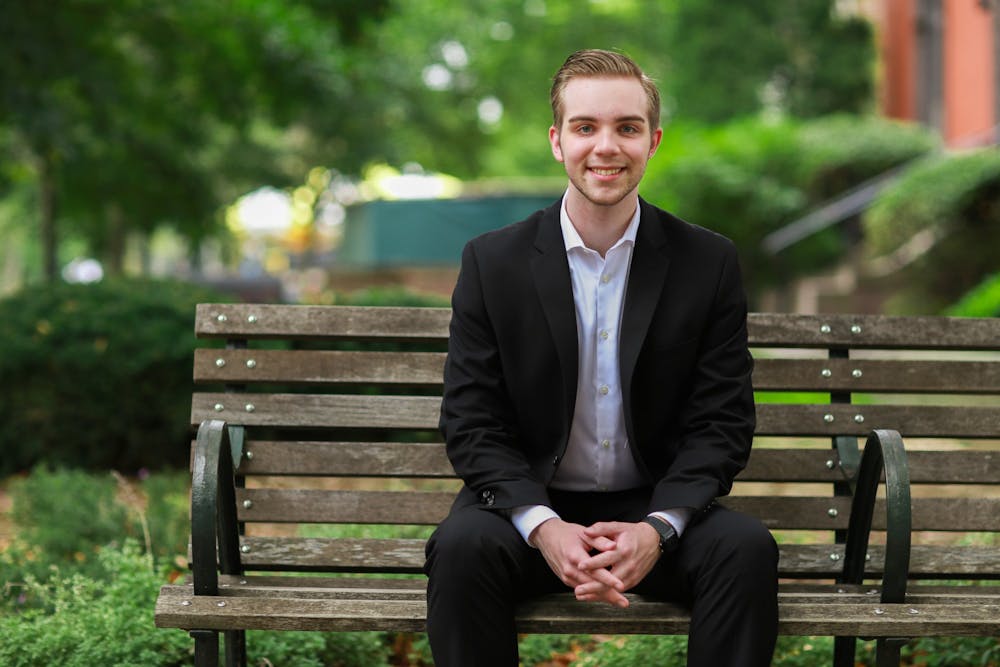
Wharton junior Frank Lapinski was tired of people just talking about fighting climate change, so he started an internship program focused on renewable energy.
This summer, he launched the Summer Solar Initiative with the Center for Strategic Policy Innovation, a non-profit think tank, to give Penn students work opportunities in the renewable energy industry. The 12 students who participated in the virtual internship worked with 14 solar energy sites in six states from May to late August.
“Climate change is real. We need to invest in it and we need to make sure that we're not just talking about it, but also having an impact,” Lapinski said. “That's what is so important about this project — everybody talks a good talk, but we need to fight a good fight.”
Lapinski reached out to the Center for Strategic Policy Innovation to see if they needed student help on any projects during the summer, and recruited interns from the Wharton Undergraduate Energy Group.
The Center for Strategic Policy Innovation provided the student interns with oversight of the three project teams, contacts at solar energy sites, and training on using key tools.
The Feasibility Consulting team advised towns in six states on the best sites to develop solar power projects. The Budget Research team researched how government funding — such as the $1 trillion Senate infrastructure bill — can aid the transition to solar energy. The Grant and Budget team reached out to 35 different grant and loan funding opportunities for renewable energy projects worth over $14 million.
Lapinski spoke with environmental science and economics professors at Penn, as well as Center for Strategic Policy Innovation President Kevin Daehnke to determine how Penn students could have the greatest impact in the renewable energy field.
“It was only once I sat down with [Daehnke] that everything started to click and we were able to get some projects that worked,” Lapinski said.
Engineering sophomore Alina Ho, a member of the Grant and Budget Team, said she looked for grants that applied to solar energy products and advised how the Center for Strategic Policy Innovation could use them.
Ho said her team's biggest accomplishment was putting together a tailored grant database for the Center for Strategic Policy Innovation, which will help the think tank find funding opportunities to pursue.
During the internship, Ho said she learned a lot about the renewable energy industry from her team members and the Center for Strategic Policy Innovation.
“Having that type of exposure and meeting all of those industry experts was incredible,” she said.
Wharton senior Wilson Morse said his favorite part of the internship was also the most challenging. As a member of the Feasibility Consulting team, Morse learned to use a modeling software called SAM, or system advisor model, which models renewable energy systems.
“Most of us were coming from more of the business side, so trying to figure out what an inverter is and things like that, it's kind of difficult,” he said. “Figuring out that software was super rewarding.”
Morse modeled the types, sizes, and costs of potential solar energy systems for each of the 14 solar energy sites. He said the Summer Solar Initiative focused on “shovel-ready solar projects,” which could start immediately without having to build anything.
Since the internship was virtual, Morse said it was easy for members to work flexible hours while taking part in other summer internships. Morse said he spent about five or 10 hours on the project each week.
Ho said that the internship provided impactful exposure for students interested in renewable energy.
“The point of an internship is that you learn about the industry, you gain some basic skills, and then you get to apply them, and that's exactly what this internship does,” she said. “It's a wonderful experience for any student interested in climate change and energy.”
Morse added that he was thankful the Summer Solar Initiative provided opportunities for Penn students to get involved in combating climate change, as he feels there aren’t many opportunities at the University.
“We have a ton of smart people,” he said. “I think [Penn] should be making it easier for people to work on this problem that's going to define our generation.”
Lapinski said that while he isn’t sure whether the program will run again next summer, he hopes that it is able to continue.
“It was incredible to be on the forefront of energy and policy as a whole, as well as helping people build towards a cleaner future,” he said. “There's a lot of push in the social space for it, but being able to help develop it and really get that tangible impact — that was incredible.”
The Daily Pennsylvanian is an independent, student-run newspaper. Please consider making a donation to support the coverage that shapes the University. Your generosity ensures a future of strong journalism at Penn.
Donate






